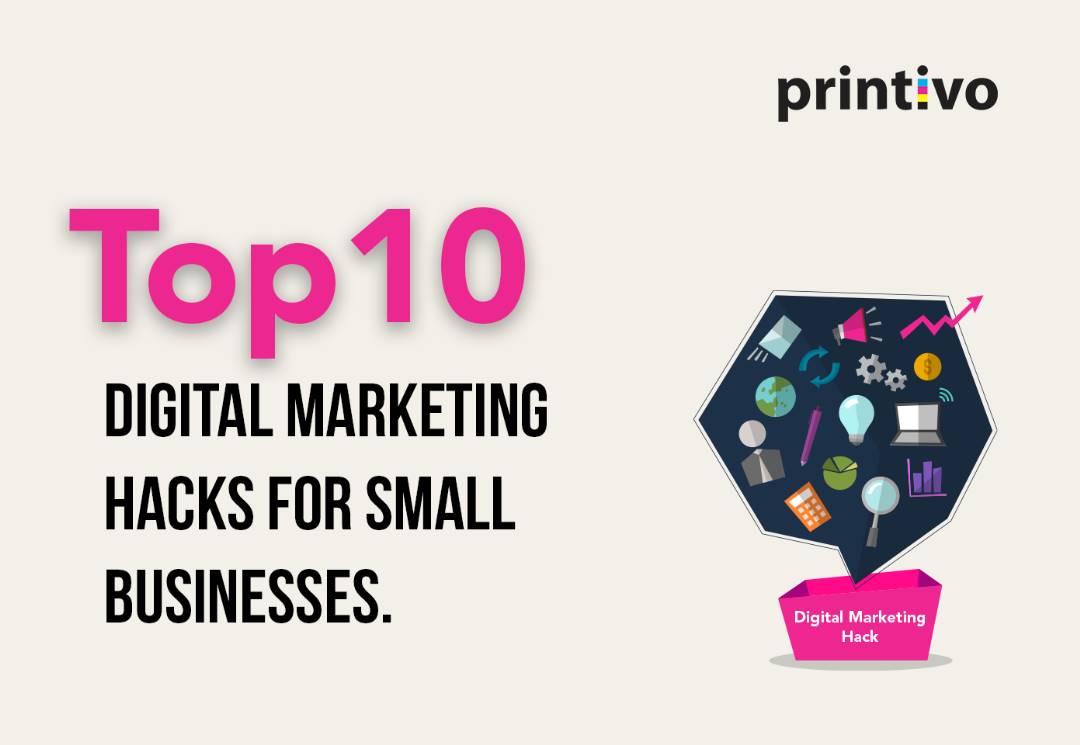Digital marketing has become an essential component for the success of businesses, regardless of size. It is no longer a luxury for businesses to have an online presence; it is now a necessity.
Samantha had always dreamed of running her own business. After years of saving and planning, she finally decided to take the leap and open up a small bakery in her town. She was excited to offer her customers delicious treats and bring a smile to their faces.
But Samantha soon realized that running a small business was not as easy as she had hoped. With limited resources and a small budget, she struggled to get the word out about her bakery and attract new customers.
That’s when she discovered digital marketing hacks for small businesses. These simple but effective strategies helped her to maximize her online presence and grow her customer base.
In today’s digital age, small businesses are facing stiff competition to stand out in a crowded online marketplace. However, with the right digital marketing hacks, small businesses can maximize their online presence and drive sales. In this article, we will explore the top 10 digital marketing hacks for small businesses.
-
Develop a Strong Social Media Presence
Social media is a powerful tool for small businesses to connect with their audience and promote their products or services. Small businesses should create a strong social media presence by identifying the platforms their target audience is active on, creating a content calendar, and engaging with their audience through likes, comments, and shares.
Small businesses should also leverage social media advertising to reach a wider audience and drive sales. By using targeted advertising, small businesses can reach users who are more likely to be interested in their products or services.
-
Optimize for Local SEO
Local SEO is a powerful way for small businesses to attract local customers and stand out in local search results. Small businesses should optimize their website for local search by including their business name, address, and phone number (NAP) on their website and ensuring that their website is mobile-friendly.
Small businesses should also claim their Google My Business listing and ensure that their listing is complete and accurate. This will help their business appear in local search results and attract more local customers.
-
Use Email Marketing
Email marketing is a powerful way for small businesses to stay in touch with their audience and promote their products or services. Small businesses should create a targeted email list of subscribers and send regular newsletters and promotional emails.
Small businesses should also use email automation to send personalized and relevant emails to their subscribers based on their behavior and interests. This will help increase engagement and drive sales.
-
Leverage Influencer Marketing
Influencer marketing is a powerful way for small businesses to reach a wider audience and build trust with their target audience. Small businesses should identify influencers in their industry and collaborate with them to promote their products or services.
Small businesses should ensure that the influencers they collaborate with align with their brand values and target audience. They should also set clear goals and metrics for their influencer marketing campaigns to measure their success.
-
Use Chatbots for Customer Service
Chatbots are a powerful way for small businesses to provide 24/7 customer service and improve customer satisfaction. Chatbots can be used to answer frequently asked questions, provide product recommendations, and handle customer complaints.
Small businesses should ensure that their chatbots are user-friendly and provide accurate and helpful information. They should also monitor and analyze their chatbot conversations to identify areas for improvement.
-
Create High-Quality Content
Creating high-quality content is a powerful way for small businesses to attract and engage their target audience. By providing valuable and relevant content, small businesses can establish themselves as industry experts and build trust with their audience.
Small businesses should create content that is informative, entertaining, and valuable to their target audience. They should also ensure that their content is optimized for search engines and shareable on social media platforms.
-
Use Video Marketing
Video marketing is a powerful way for small businesses to engage their audience and promote their products or services.
Video content can be shared on social media platforms, websites, and other online channels.
Small businesses should create videos that are informative, entertaining, and visually appealing. They should also ensure that their videos are optimized for search engines and shareable on social media platforms.
-
Use Retargeting Ads
Retargeting ads are a powerful way for small businesses to reach potential customers who have already shown interest in their products or services. Retargeting ads are shown to users who have visited a website but have not completed a desired action, such as making a purchase or filling out a form.
Small businesses should use retargeting ads to remind potential customers about their products or services and encourage them to complete the desired action. They should also use dynamic retargeting ads to show personalized ads to users based on their browsing history and interests.
-
Offer Referral Programs
Referral programs are a powerful way for small businesses to incentivize their existing customers to refer their friends and family to their business. Referral programs can be in the form of discounts, free products or services, or other incentives.
Small businesses should create referral programs that are easy to understand and shareable on social media platforms. They should also track and measure the success of their referral programs to identify areas for improvement.
-
Monitor and Analyze Performance
Monitoring and analyzing performance is a critical step for small businesses to measure the success of their digital marketing efforts and identify areas for improvement. Small businesses should use analytics tools to track website traffic, social media engagement, and other key performance indicators.
Small businesses should also set clear goals and metrics for their digital marketing campaigns and regularly review and adjust their strategies to achieve their goals.
However, it’s important to remember that these digital marketing hacks are not one-size-fits-all solutions. Small businesses should tailor their digital marketing strategies to their specific industry, target audience, and business goals.
Small businesses should also stay up-to-date with the latest digital marketing trends and technologies to stay ahead of the competition. By staying informed about the latest developments in digital marketing, small businesses can continuously improve their online presence and drive sales.
In addition, small businesses should prioritize building strong relationships with their customers. By providing excellent customer service and fostering a positive relationship with their customers, small businesses can build brand loyalty and encourage repeat business.
Finally, small businesses should not be afraid to experiment with different digital marketing strategies and tactics. By trying new approaches and measuring their success, small businesses can identify what works best for their business and continuously improve their digital marketing efforts





